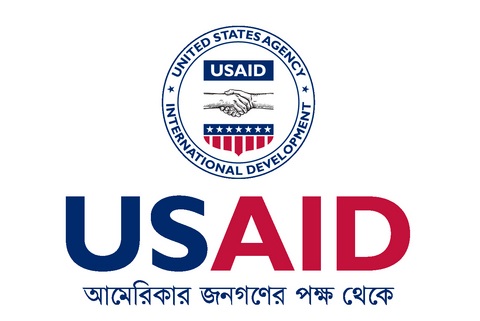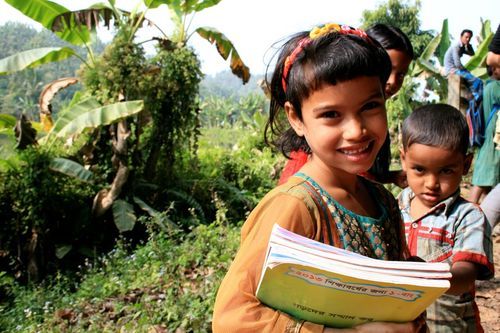
Bangladesh is a developing nation in South Asian subcontinent. The population is around 160 million people, most of which is youth. The country also has other advantages in terms of economy, demographics, culture, art, geography and literature.
Current Issues with Bangladesh
However, Bangladesh is facing health and literacy problems. 62% of health care providers in rural areas are village doctors with minimum training or education. Worse, 70% of villages still refer to these doctors for help. Only 4% of health care workforce consists of formally trained health service providers. Malaria, Leptospirosis and dengue are common. Malnutrition, maternal and child health issues continue to pose a threat to hale and hearty life.
Literacy rate is another concern for the people of Bangladesh, especially women. While men are only 61.3% literate, according to same census conducted in 2010, women have a lower rate, only 52.2% to be precise.
This problematic duo can be dealt with better access and better means. Unfortunately, not everyone can do so. This has led to NGOs, local private and social bodies to lend a hand to authorities and provide the public what it seeks desperately. There are efficient ways that have been introduced to Bengali women, but the one leaving the most impact is Social Franchising.
Social Franchising Opportunities – Solution to Bengali Women
This is where social franchises come in. Social franchises are alliances with existing NGOs and service providers to improve education and health care conditions in target region. USAID’s smiling sun franchising project is a decent example of social franchising, focusing on health and education.
What is Social Franchising and how do they Work?
Social franchising programs are very similar to commercial franchising where the franchisees pay a one-time fee and join the phenomenon. The only real difference is/are objective(s). Social franchises focus on welfare, social benefit and replication of the process.
Once the franchisees take part in the program, they are provided adequate training for health care, counseling, and education. But before they start, they are also given equipments and supplies in addition with consent to use franchisor’s name.
Purpose of Social Franchising in Bangladesh
Social franchises aim to create opportunities through their program and share ideas. Though their objectives are accomplished when adequate opportunities have been created, profits are also needed to keep the franchise running. Social Franchising aims to:
- Provide opportunities to unemployed population.
- Provide opportunities to women.
- Empower Bengali women.
- Knowledge transfer/ awareness.
- Access to health services and testing for diseases and disorders.
What are the Strengths of Social Franchising?
Social franchising has multiple strong areas. Some of key points of social franchising are following:
- Returns to scale: with more clients, the returns increase extensively.
- Cost-Subsidization: Cost among subscribing clients are subsidized, also known as cross-subsidization.
- Cost Efficiency: With collaborations in franchising programs, training, supplies, drugs and marketing costs can be saved.
- Better Services and Innovativeness: Upon careful supervision, franchisees can contribute to effective care and innovation in the region.
- Improved Role-playing: Franchises can also lead to improved NGO and authority roles.
- Fail-proof Model: Model of social franchise is proven and replicable
- Greater Success: Franchises enjoy better success under an established brand. Collaborative efforts help achieve better results collectively.
- Bigger Segment Served: Franchisees can serve a broader spectrum.
- Better Financial Negotiations: Financial reimbursements can be collectively negotiated.
- ncreased Accessibility: Costly medicines and costly procedures also become accessible.
What are the Benefits to Women Franchisees in Bangladesh?
With the increased awareness of Bengali population regarding education health and women empowerment, and with the penetration of social franchises and NGOs, more opportunities are popping up for women. Bengali women now have increased access to income-generating activities along with better chances of improving their knowledge, skills, health conditions and lifestyles. Benefits include:
1. Knowledge Transfer
Capital for business goes hand in hand with skills and knowledge. Skills and knowledge makes a woman more competent. Competence directly results in empowerment.
2. Rapid Growth
Aside from empowerment and greater proficiency, social franchises are also a viable source to increase income. The business model is proven and success is almost guaranteed for franchisees taking part in the program. A powerful phenomenon can be created by aligning with a social franchisor.
3. Better Survival
Bengalis also get:
a) Better credibility
b) Better help and support from franchisors and fellow franchisees for additional help.
c) Access to previously inaccessible and unaffordable services
d) Opportunities to share developments with franchisor and franchisees.
e) Growing number of Bengalis in franchising, especially women as their number increases.
Role of Franchisees in a Social Franchise
Social franchisees reap the benefits of a better life if they fulfill their duty to the society and the franchise. When franchisees engage in this social process, they commit to:
- Provide socially beneficial services
- Act in accordance with quality and pricing standards
- Keep an eye on developments and progress
- Abide by educational and academic requirements
- Report the services and progress.
- Report statics to the franchisor
- Pay full fee
To Establish the Franchise and Keep it Running
To attain the objectives and to ensure the sustainability, the project must be long-term and have realistic goals. In addition, the objectives and the means to attain objectives must also be measurable. Key points to keep a social franchise running are following.
- Fiscal transparency must be present in the franchise
- Franchise must understand their responsibility
- Resources must be effectively and efficiently managed
- Successful franchises are able to train and retain a qualified staff.
- Providing services in best ways
- Competency in monitoring and supervision of services
- The power to effectively market its services
- Ability to bring innovativeness in services
- Respect among clients and peers
- Franchisee must effectively engage to formulate policies and coordinate programs
Weaknesses in Social Franchising
However there are some inherent weaknesses in social franchising as well. Most of these difficulties can ease up if enough participants can be gathered for social franchising and a strong network with fellow clients and franchisor can be established. Other weaknesses spring from ineffective monitoring. Weaknesses include:
- Long term costs: Franchises will be successful if they manage to run for years. Initial period is for cost recovery and to assess the real situation.
- Lower priority for less-profitable services: Once the franchisor ends its support in the region, there is a chance of decline in high quality services that are not revenue-promising. The franchisees or NGOs might be forced to resort to low-quality means because of insufficient costs.
- Necessary prolonged support by franchisor: Large number of poor clients might result in discontinuation of services after franchisor’s support ends.
- Effective ongoing management: There is a consistent need to recruit and train qualified and competent staff for continual of high-quality services.
- Limited expectations when serving the poor: The profit is an important aspect to keep things running. Cross sublimation solves this problem when the balance is not heavily tilted towards the poor.
Notwithstanding the situation, there is an inherent need of social franchising in Bangladesh thus empowering Bangladeshi women. Bangladeshi population in need of better health services, better education and better business opportunities. Social franchising cannot all of these issues overnight, but such opportunities can ease the burden from government and other NGOs so achieving a poverty-free, healthy and educated Bengal no longer remains a dream.
Related articles
Women Entrepreneur in Bangladesh - Inspiring Wo...
Oct 30, 2014
Barriers to Women Entrepreneurs in Bangladesh
Sep 29, 2014
Small business ideas for women in Bangladesh
Aug 19, 2014
Women Entrepreneurship and Female Entrepreneurs...
Aug 18, 2014






